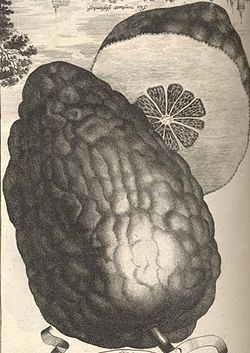Let’s try something a little different: Meditation. Don’t worry, I’m not going to ask you go sit cross-legged on a mountain top and try to clear your mind.
You may be wondering, I didn’t know meditation was a Jewish thing?
Well, it is. But perhaps not quite the cross-legged, white robed, mountain top experience. Rather, the Jewish view of meditation is that one should not attempt to clear or empty one’s mind (as this, in fact, is quite impossible), but rather, one should endeavor to fill one’s mind – with thoughts of holiness. 
In this case – being that we are currently celebrating the holiday of Sukkot – I thought it apropos to teach a Sukkot-related meditation. In fact, while Jewish meditation can be done just about anywhere or anytime, this teaching is best applied while performing the mitzvah of shaking the lulav and etrog (a daily commandment for the holiday of Sukkot, excluding Shabbat).
Although commonly referred to as the mitzvah of lulav, the commandment in fact entails the use of four types of greenery: the lulav (palm branch, etrog (citron), hadas (myrtle), and aravah (willow). However, when one performs the commandment of shaking them, they are not to be shaken separately, but together as one.
Here is step one of this Sukkot meditation: As you prepare to pronounce the blessing, reflect upon the fact that true unity means coming together with our differences. As some say, America is more aptly categorized as a “tossed salad” than a “melting pot,” because we are meant to keep our independent qualities and identity.
The next part of the meditation is comprised of six parts, each part corresponding to one of the directions that you will shake the lulav in. Stand facing East (Jerusalem), and begin shaking South (i.e. to your right side):
SOUTH: As you travel South towards the equator, heat intensifies. As you shake your lulav southward, meditate on the fact that your shakes are symbolically pushing off the heat and passion of unhealthy desires; so too, in your day-to-day life, you will have the strength to withstand the excitement and energy of cravings that are not good for you.
NORTH: Traveling North, the temperature drops. Thus, shaking the lulav in this direction is a meditation in pushing away the coldness and apathy in your life. With each of the three shakes in each direction, we strengthen our commitment to be excited about Judaism; no more coldness for me, thank you. The fact that we shake three times in each direction is also significant (hey, what isn’t?!), as the number three in Judaism represents “strength.”
EAST: The sun rises in the east, indicating that it is incumbent upon us to always “rise” and increase the light that we shine on those around us. This meditation focuses on the fact that we are not to be satisfied by what we have achieved until now, but our “sun” must symbolically rise.
UP: There are some things which are above my understanding. The Torah has many parts to it; some are the legal, and others are the mystical. One might think, “I am not a mystic, nor am I even particularly spiritually inclined; why should I pursue the esoteric teachings of Judaism?” We thus shake upwards, indicating that I will strive to reach up, even to those teachings which may appear beyond me.
DOWN: Through proper meditation on the above four directions/concepts, I will be able to “shake down,” i.e. have an influence on the world around me (which is physically below me). The first four steps are meditation, while this step is a meditation on how I will apply everything I have reflected on until now.
WEST: The sages teach us (Babylonian Talmud, Bava Batra 25a) that “the Shechina (Divine presence) is in the West.” Thus, shaking westward (over your shoulder, while standing facing Jerusalem), is a reflection on how I become a partner with the Creator by bringing more light and kindness to the world.
Well, there you have it: a Sukkot meditation in a nutshell. Now that you have what to think about while shaking the lulav this holiday, it might take you more than 10 seconds… and it might change the world for the good. Chag Sameach!

